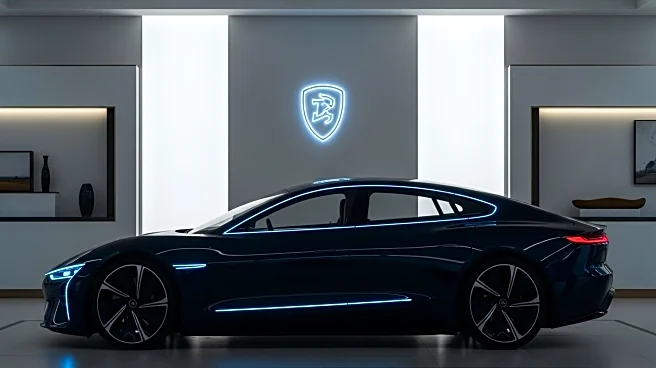What is the story about?
What's Happening?
Ferrari has announced that it will not use synthetic engine noises for its first electric vehicle, the Elettrica. Instead, the company is developing a system that captures and amplifies genuine motor vibrations, inspired by technology used in electric guitars. This decision comes as Ferrari prepares for the full reveal of the Elettrica in spring 2026. The Italian hypercar manufacturer aims to maintain authenticity in its acoustic strategy, addressing speculation that the battery-powered model would mimic traditional combustion engine sounds.
Why It's Important?
Ferrari's decision to reject synthetic engine noises for its electric vehicle marks a significant shift in the automotive industry, particularly among luxury car manufacturers. By focusing on authentic motor vibrations, Ferrari is setting a precedent for how electric vehicles can maintain the brand's iconic sound identity without relying on artificial enhancements. This move could influence other manufacturers to explore innovative ways to preserve traditional automotive experiences in the transition to electric mobility. The approach may appeal to purists and enthusiasts who value the genuine auditory experience associated with high-performance vehicles.
What's Next?
As Ferrari prepares for the Elettrica's full reveal in 2026, the automotive industry will be watching closely to see how this acoustic strategy is received by consumers and critics alike. The success of Ferrari's approach could lead to broader adoption of similar technologies across the industry, potentially influencing how electric vehicles are marketed and perceived. Additionally, Ferrari's commitment to authentic sound experiences may drive further innovation in electric vehicle design, as manufacturers seek to balance modern technology with traditional brand values.
Beyond the Headlines
Ferrari's decision not to use synthetic engine noises raises questions about the future of automotive sound design in electric vehicles. The move highlights the cultural and emotional significance of sound in driving experiences, suggesting that manufacturers may need to consider these factors more deeply as they develop new models. This could lead to a reevaluation of how sound contributes to brand identity and consumer satisfaction in the evolving landscape of electric mobility.

















